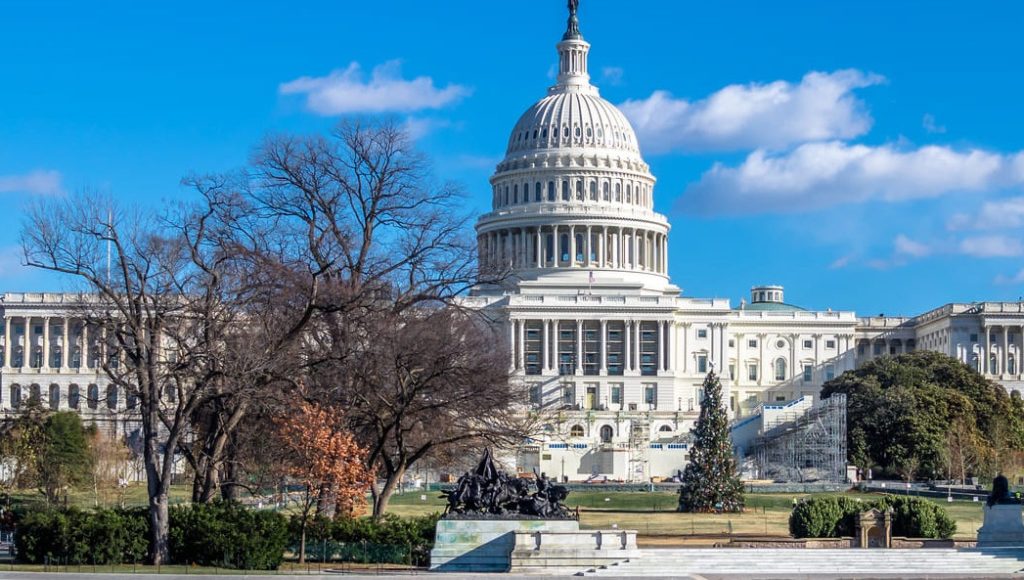
The Fee Is Free Unless You Win.
Top Rated Employment Law Firm
Protecting Families Since 1995
$450 Million Won
TABLE OF CONTENTS
Religious Anti-discrimination laws require employers to provide reasonable accommodations for employees and their religious beliefs. Employers must allow employees to practice their religion while at work. However, religious practices cannot infringe on other employees’ rights or make undue hardships for the employer.
If your employer refuses you appropriate religious accommodations or allowances, you have the right to compensation. You’ll need a lawyer who will negotiate on your behalf. You need an advocate to stand by your side and help you stand up for your rights to religious freedoms.
Religious discrimination in the workplace occurs when an employer, CEO, supervisor, manager, coworker, client, customer, or non-employee makes negative employment decisions or harasses an employee or job applicant due to religion (a protected class). These negative employment actions include refusing employees the right to practice their religion as needed.
The law prohibits all forms of religious discrimination in the workplace. It also requires employers to provide reasonable accommodations for employees to practice their religion.
Contact a dedicated employment discrimination lawyer if your employer denies you the right to practice your religious beliefs in the workplace.

Religions often include practices that are very important to followers. Some of these practices refer to clothing. Others refer to recommended or required prayer times and holiday observances. Still, others relate to fasting or eating specific types of food.
In most cases, employers must provide reasonable accommodations for employees to practice their religious beliefs.
Examples of reasonable accommodations in the workplace for religious practices would include:
You cannot get fired from work, demoted, suspended from work, or face other forms of retaliation because you requested reasonable religious accommodations.
Religious beliefs can often dictate clothing choices. Some examples of clothing requirements under religious reliefs may include:
While a company may require a uniform under most circumstances, you may request accommodations to maintain your religious beliefs. You can ask your employer to allow you the right to wear long sleeves under your uniform shirt. You may ask to wear your head covering of your burka or sari with your uniform. You may also ask to add your yarmulke and tallit in addition to your uniform.
While your employer can require you to wear a uniform, you have the right to receive changes to your uniform. These changes can help you maintain your religious beliefs while adhering to company policy.
Technically, an employer may ask you to prove your religious affiliation. Employers may ask for a letter of membership if you belong to an organized place of worship.
Many people practice religions with no organized place of worship and no religious leaders. An employer cannot ask for proof of religious beliefs since there is no one to ask. Furthermore, an employer cannot deny you accommodations because you are not part of an organized religion.
All an employee needs to prove they practice a religion is that they sincerely hold the religious belief. No other proof of religious beliefs is required. Asking for more may be a violation of religious discrimination laws.
Some ways to demonstrate sincerely held religious beliefs may include:
Discover how our expertise has helped clients overcome their legal challenges and achieve successful outcomes.
View All TestimonialsOlivia is the best! Oliva was very thorough, patient, and very detailed and descriptive regarding the process. She was very supportive of my sexual harassment case. From the very beginning, she communicated and would provide me with any updates and she was always available when I needed anything. More importantly, she always extended that comfort level of trust which always made me feel at peac... Read Full Testimonial
Casey Barkhordarian is a fabulous attorney to work with. He explained everything to me about the case (including the millions of questions I asked) right from the start of our very first meeting. He did so in a way that I could understand and was very prompt and clear with communication the entire time. Casey Barkhordarian is a very competent and knowledgeable lawyer to have on your team. I def... Read Full Testimonial
Matt Finkleberg is by far the best attorney I’ve ever hired! From the outset, it was evident that he was not just another lawyer; Matt is nothing short of extraordinary. He possesses the ability to do his job phenomenally while somehow managing to give me hope during one of my darkest of hours. Matt consistently returned my calls promptly, regardless of my questions, confusion, or self-doubt ... Read Full Testimonial
I cannot speak highly enough about my experience working with Matt Finkelberg. From the very beginning, Matt approached my case with an incredible level of professionalism, knowledge, and dedication that immediately put me at ease. It is rare to find an attorney who not only possesses an impressive depth of legal expertise but who also truly cares about the well-being and best interests of thei... Read Full Testimonial
Olivia is absolutely outstanding! She understands the emotional side of your case while being able to find the legal aspects of holding the employer accountable for breaking the law! Made a really terrible situation a little easier by explaining everything and helping me get everything in order and in the right hands. I would not use anyone else! Call them for any sexual harassment case... You ... Read Full Testimonial
This law firm is absolutely amazing!!! They went so above and beyond for me!!! I am so grateful for all their help with my difficult case!!! If you need a lawyer, you will be in great hands with their firm!!! And wait until you see the office! The building is so high tech I couldn't figure out how to get in the elevator lol!
It was a pleasure to have Casey represent and help me for my employment case. It was my first time needing an attorney, so I was a bit apprehensive at first – Casey took the time to answer all of my questions and fully explain everything to me, which really put me at ease. He was very attentive, supportive, and knowledgeable throughout the whole process – Casey would ask questions to ensure... Read Full Testimonial
matt is an excellent attorney. he handled my case with the utmost care and highly exceeded all expectations. i could not recommend derek smith and esp. matt finkelberg enough
matt is an excellent attorney. he handled my case with the utmost care and highly exceeded all expectations. i could not recommend derek smith and esp. matt finkelberg enough 🙂
Matt handled a suit against the City of LA and members of the a Neighborhood Council for racial discrimination and harassment. Ths was the first suit of this type filed on a Neighborhood Council Matt handled it with poise and above all professionalism. He walked me through the 3 year process and above all provided moral support and encouragement as I still experienced racism and harassment duri... Read Full Testimonial
Matt Finkelberg is Amazing and Devotional! It was a pleasure to have Matt represent me for my employment case. He was very attentive, supportive, and knowledgable throughout the whole process. Whenever I reached out he responded promptly which I greatly appreciated. Matt fought diligently and hard throughout my case to make sure my case was represented best. Thank you again Matt for everything.... Read Full Testimonial
It was a pleasure to have Casey represent and help me for my employment case. It was my first time needing an attorney, so I was a bit apprehensive at first – Casey took the time to answer all of my questions and fully explain everything to me, which really put me at ease. He was very attentive, supportive, and knowledgeable throughout the whole process – Casey would ask questions to ensure... Read Full Testimonial
Our dedicated attorneys are ready to fight for your workplace rights and ensure justice!
Employers may deny requests for religious accommodations if the request creates an undue hardship for the employer.
Undue hardships occur when accommodating the need for a religious accommodation puts a financial strain on the employer. Employers must measure each request independently for undue hardships. Undue hardships take into account the following factors:
Employees are welcome to pray at work. However, they cannot preach (or proselytize) in the workplace. Preaching harasses other employees who do not follow that religion. Therefore, it is not a protected right for an employer to accommodate.
When an employee tries to preach, convert, or speak negatively about any other religious beliefs, the employee infringes on your rights to practice your religion freely. One employee’s rights cannot take away from another’s rights.
You may find that people who preach at work will get a warning to prevent the behavior from continuing. However, if the behavior continues, that person may get fired from work for continuing this prohibited behavior.
Title VII of the Civil Rights Act mandates employers provide reasonable religious accommodations for employees. If your employer denies you religious accommodations without undue hardships, you may file a charge with the Equal Employment Opportunity Commission (EEOC).
Title VII charges must be filed with the EEOC within 180 to 300 days of the incident, depending on your state. The EEOC will investigate your allegations and issue a Right to Sue letter. This letter provides you 90 days to file a complaint in civil court.
State laws can also offer relief for the denial of religious accommodations. You may choose to file your charge with your state agency or in state court. A qualified religious discrimination attorney can help you determine which court is best suited for your case.

If your boss denies you religious accommodations in the workplace, you may be entitled to some of the following relief:
When you sincerely hold a religious belief, you should receive accommodations to practice your religion as needed. However, many employers will attempt to squash your rights. They will ask to prove your religious affiliation. They will claim you must wear a uniform, get a vaccine, or otherwise adhere to their secular standards regardless of your religious beliefs.
A well-qualified religious discrimination lawyer can help you fight these injustices. Your lawyer can help defend your right to your religious beliefs without additional proof. They can defend you when your employer attempts to attack you and claim your beliefs are not sincerely held, or the accommodations create an undue hardship.
An experienced discrimination lawyer can negotiate your claim from the moment you enter the office. They can ensure you file your claim within the appropriate time limit allowed by law. Finally, your attorney will advocate for your rights from the beginning of the process through settlement or trial as needed.
You have the right to practice your religion anywhere. This right includes practicing at work. If your employer denies you religious accommodations in the workplace, the dedicated religion discrimination attorneys at the Derek Smith Law Group can help.
Did You Request Religious Accommodations at Work? Did Your Boss Deny You These Accommodations? Do You Want to Know Your Rights Regarding Religious Freedom at Work? Please Call Us at 800.807.2209 for Help.
Our experienced legal team provides reliable services in key U.S. cities, ensuring expert assistance for workplace discrimination and employment law matters wherever you are located.
 New York City
New York City
 New Jersey
New Jersey
 Philadelphia
Philadelphia
 Miami
Miami
 Los Angeles
Los Angeles
 San Francisco
San Francisco
 San Diego
San Diego
 Washington DC
Washington DC